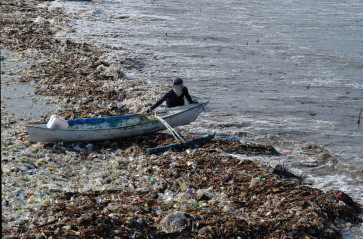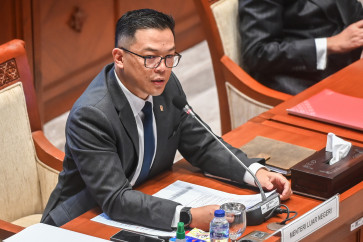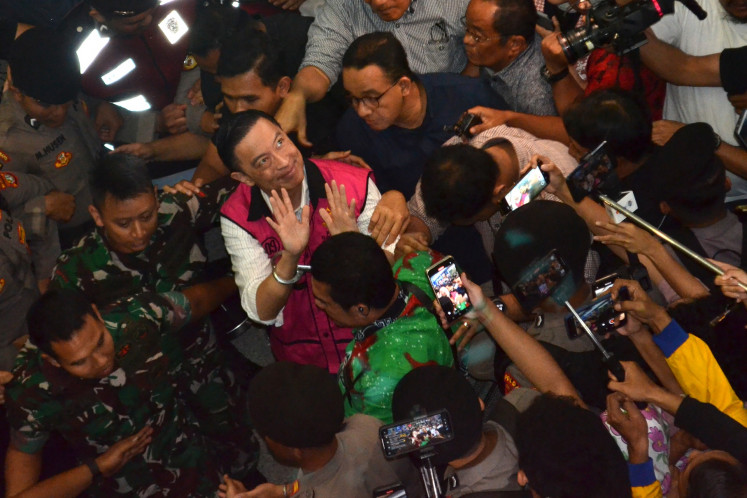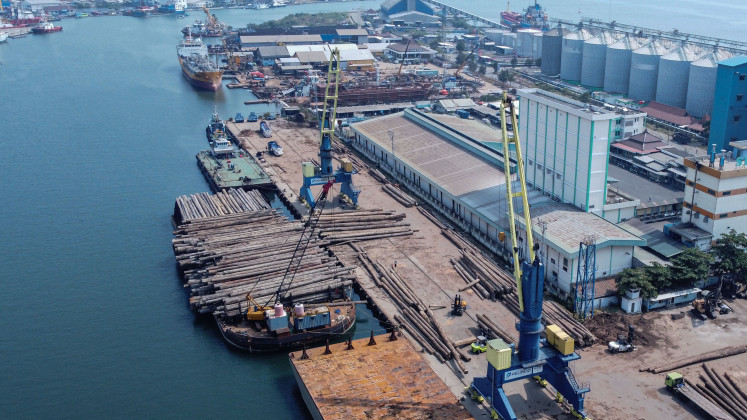Popular Reads
Top Results
Can't find what you're looking for?
View all search resultsPopular Reads
Top Results
Can't find what you're looking for?
View all search resultsLand issues hamper resettlement efforts
Land purchase and certification appear to be the most crucial problems hampering the efforts to resettle over 100,000 people that remain displaced by the social and ethnic conflicts of 1998 to 2000
Change text size
Gift Premium Articles
to Anyone
L
and purchase and certification appear to be the most crucial problems hampering the efforts to resettle over 100,000 people that remain displaced by the social and ethnic conflicts of 1998 to 2000.
Finance is very much a problem but complicated certification has aggravated the issue.
“Land is a sensitive topic. We don’t want to talk about it because it is a matter for the Indonesian government. What we can do is help facilitate land mapping through a participatory approach and also assisting the communities to get land certificates through the state agencies such as the National Land Agency [BPN],” said Muamar Vebry, the European Union (EU)’s post-disaster and reconstruction project officer.
The EU, through its “Aid to Uprooted People (AUP) Indonesia” program, has been supporting the Indonesian government in dealing with the land issue. Around 1.3 million people living in Aceh, Central Sulawesi, Kalimantan, Maluku and West Timor were forced to flee during the 1998/2000 conflicts.
Despite the government’s efforts to repatriate them, around 70,000-120,000 people remain internally displaced and live as part of the rural poor.
The AUP is a three-year project funded by the EU which started in late 2010 and will finish in 2013. It consists of six projects with a total budget of 5 million euro (US$6.4 million). Four projects in Central Sulawesi, Maluku and West Timor aim to provide internally displaced persons, or “new citizens”, access to basic services and livelihood skills.
A project in West Timor focuses on building the capacity of the local government. They also work on how to set up an early warning system to prevent conflict. In a project undertaken by Care Deutchland/Luxembourg in West Timor, for example, displaced people received support to relocate to new land provided by the government.
“But they don’t get the certificate which gives them legal right to use the land. To ensure their ownership, our project facilitates the certification process,” said Vebry.
At a wider level, UN Habitat which undertakes projects in West Timor has been supporting local administrations in identifying land and making use of it.
The EU’s head of operations, Erik Habers, said local administrations were actually fully aware of these problems. However, they focused on the overall problem instead of a specific issue. As a result, many people displaced by conflicts were still living in difficult conditions such as in Ambon, Maluku.
“People still live in terrible conditions there. They still don’t have proper housing many years after the conflicts occurred. It’s not always caused by unwillingness, but it’s just sometimes a forgotten crisis,” said Habers.
By not paying enough attention to internally displaced persons, he said the country might see increased poverty levels as people uprooted by conflicts usually had no ways to make a living.
“The land issue prevents them being active agriculturally. It may further impede them getting proper education and health care because they don’t have the same economic rights as the host communities,” said Habers.










